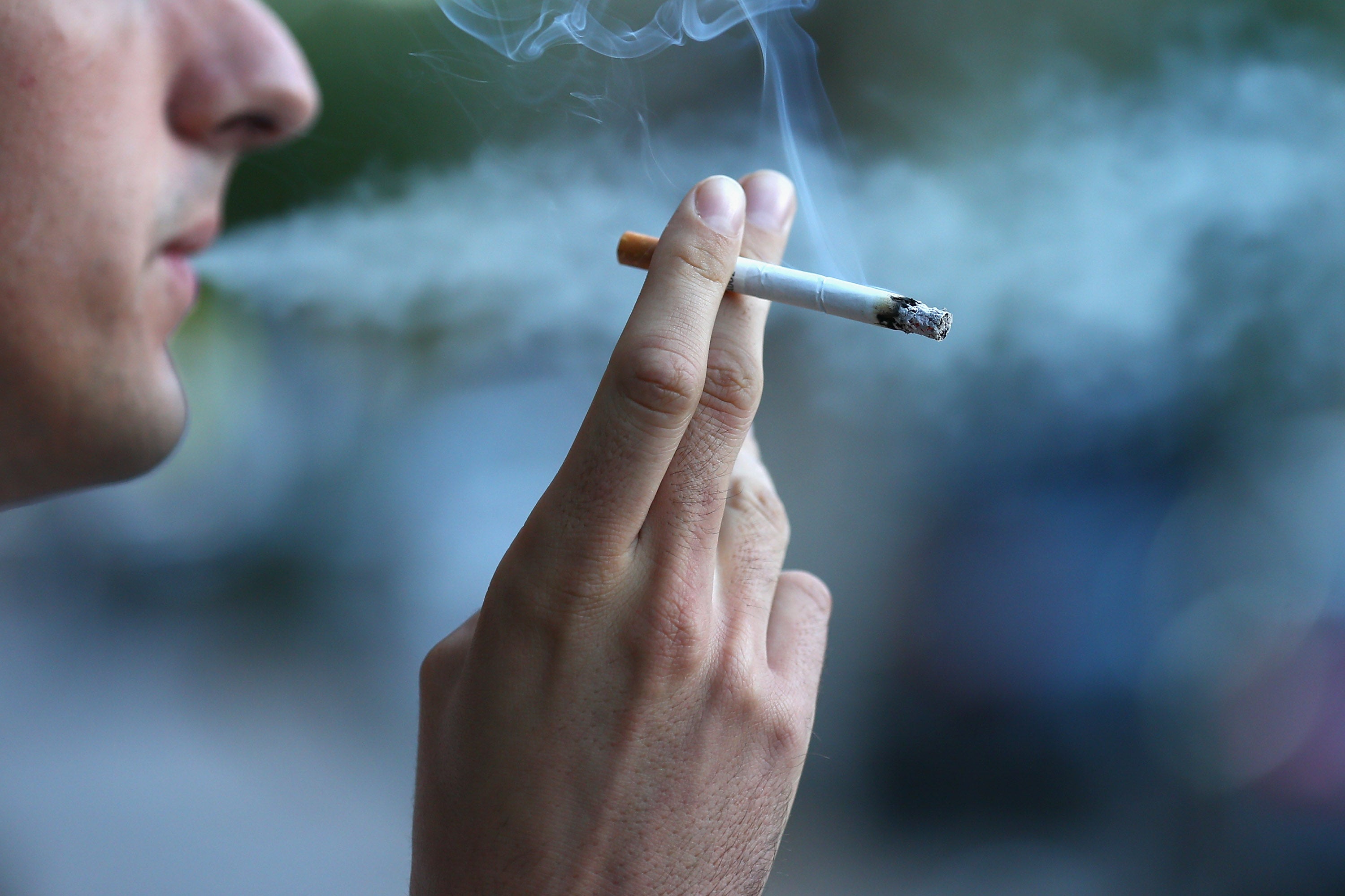Fathers who smoke risk giving asthma to grandchildren, study says
‘It is possible tobacco smoke is creating epigenetic changes in the cells that will go on to produce sperm when boys grow up,’ scientists warn

Fathers who smoke around young sons raise asthma risk by nearly three-quarters for their future grandchildren, according to new research.
Children whose fathers were exposed to second-hand smoke when growing up are more prone to the breathing disorder.
And the danger further increases in cases where the offspring goes on to become a smoker himself, say University of Melbourne scientists.
Passive smoking is believed to alter genes which pass down the generations. The mutations are carried in sperm.
Lead author Jiacheng Liu said: “We found the risk of non-allergic asthma in children increases by 59 per cent if their fathers were exposed to second-hand smoke in childhood, compared to children whose fathers were not exposed.
“The risk was even higher, at 72 per cent, if the fathers were exposed to second-hand smoke and went on to smoke themselves.”
His team analysed data from the Tasmanian Longitudinal Health Study (TLHS), the largest and longest of its kind. It has tracked participants’ respiration since 1968.
Results highlight how smoking can damage health not only for smokers and their children but also their grandchildren, the team said.
Co-lead author Dr Dinh Bui said: “Our findings show how the damage caused by smoking can have an impact not only on smokers, but also their children and grandchildren.
“For men who were exposed to second-hand smoke as children, our study suggests they can still lower the risk they pass on to their own children, if they avoid smoking.”
The study included 1,689 boys, comparing those who had been diagnosed with asthma by the age of seven.
It also looked at whether the fathers grew up with parents who smoked when they were under the age of 15, and who were current or former smokers.
Professor Shyamali Dharmage, head of TLHS, said: “We can’t be certain of how this damage is passed on through generations, but we think it may be to do with epigenetic changes.
“This is where factors in our environment, such as tobacco smoke, interact with our genes to modify their expression. These changes can be inherited but may be partially reversible for each generation.
“It is possible tobacco smoke is creating epigenetic changes in the cells that will go on to produce sperm when boys grow up. These changes can then be passed on to their children.”
In the UK, more than eight million people have been diagnosed with asthma, or about 12 per cent of the population.
It is the most common long term medical condition in children, with more than a million receiving treatment. Triggers include environmental factors, such as pollution.
Prof Jonathan Grigg, chair of the European Respiratory Society’s Tobacco Control Committee who was not involved in the research, said: “Asthma is a common, long-term lung condition that affects children and adults and usually requires ongoing treatment.
“We already know smoking and being exposed to second-hand smoke can increase asthma risk.
“This study adds to growing evidence the damage caused by tobacco smoke can be passed on to children and even to grandchildren.
“We need to protect children from this damage with measures to discourage smoking and support to help smokers quit.”
In the UK, about 3.7 million men (15.5 per cent) and three million women still smoke despite health experts warning it can lead lung cancer, cardiovascular disease and asthma.
The findings were published in the European Respiratory Journal.
SWNS
Subscribe to Independent Premium to bookmark this article
Want to bookmark your favourite articles and stories to read or reference later? Start your Independent Premium subscription today.

Join our commenting forum
Join thought-provoking conversations, follow other Independent readers and see their replies